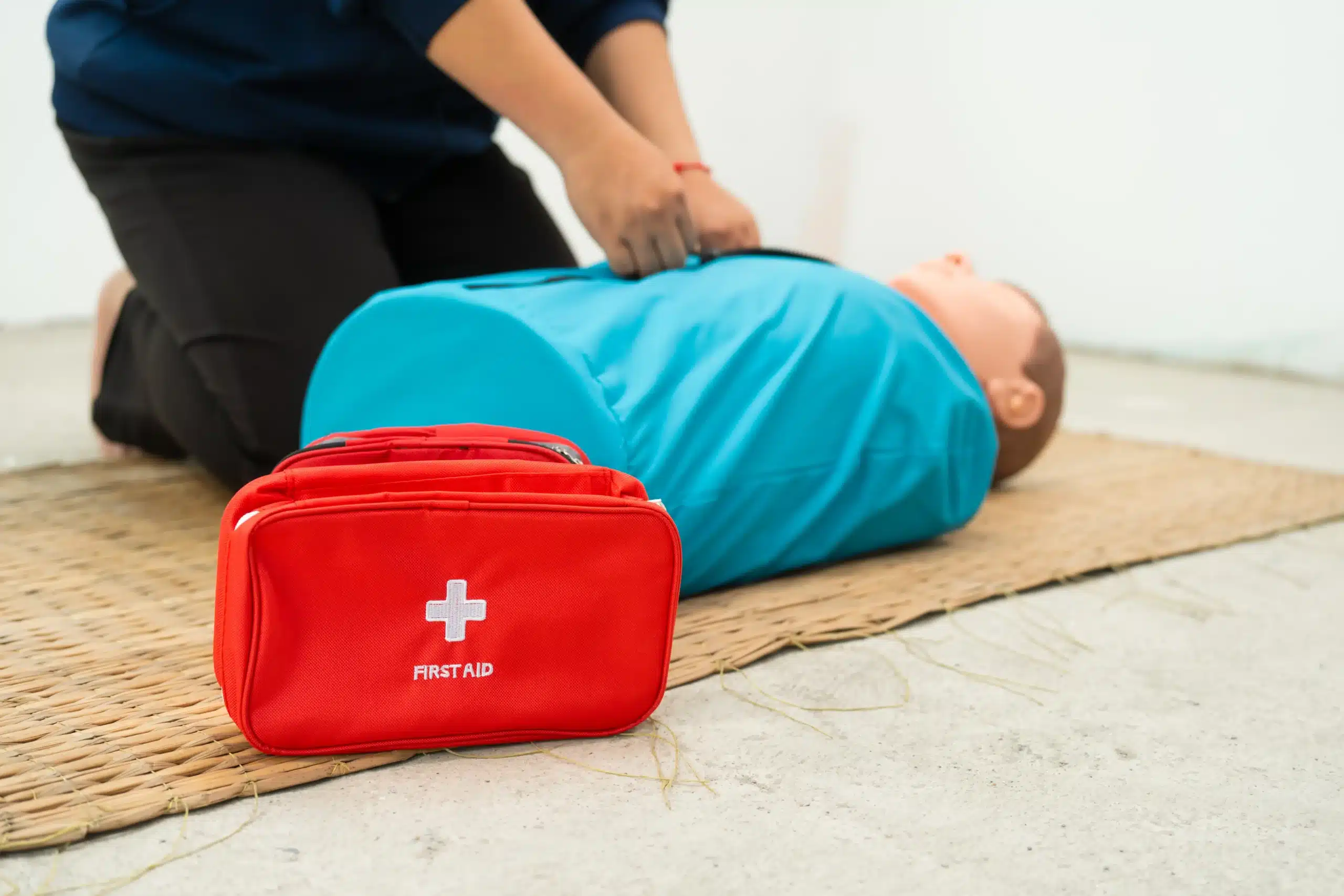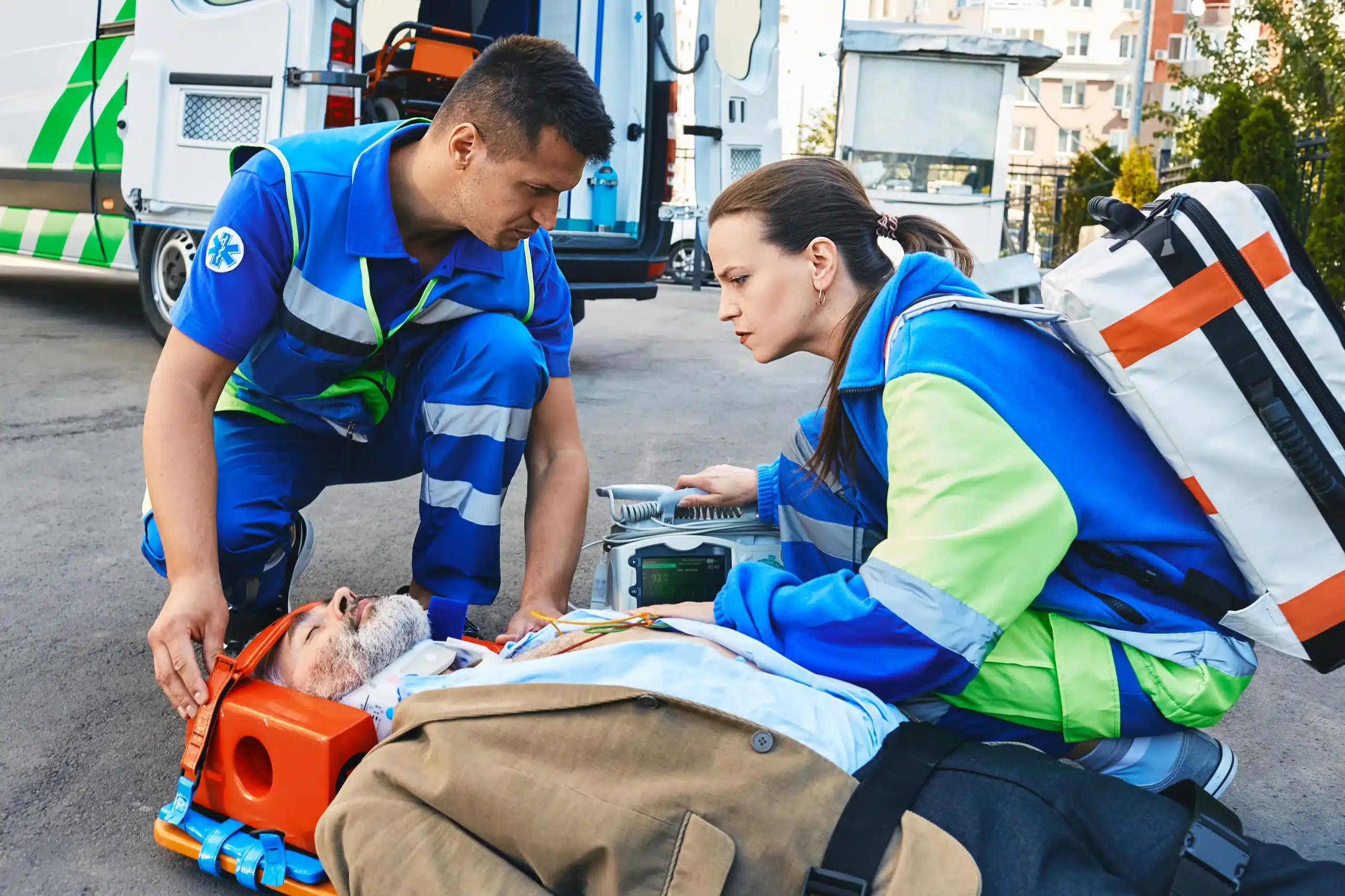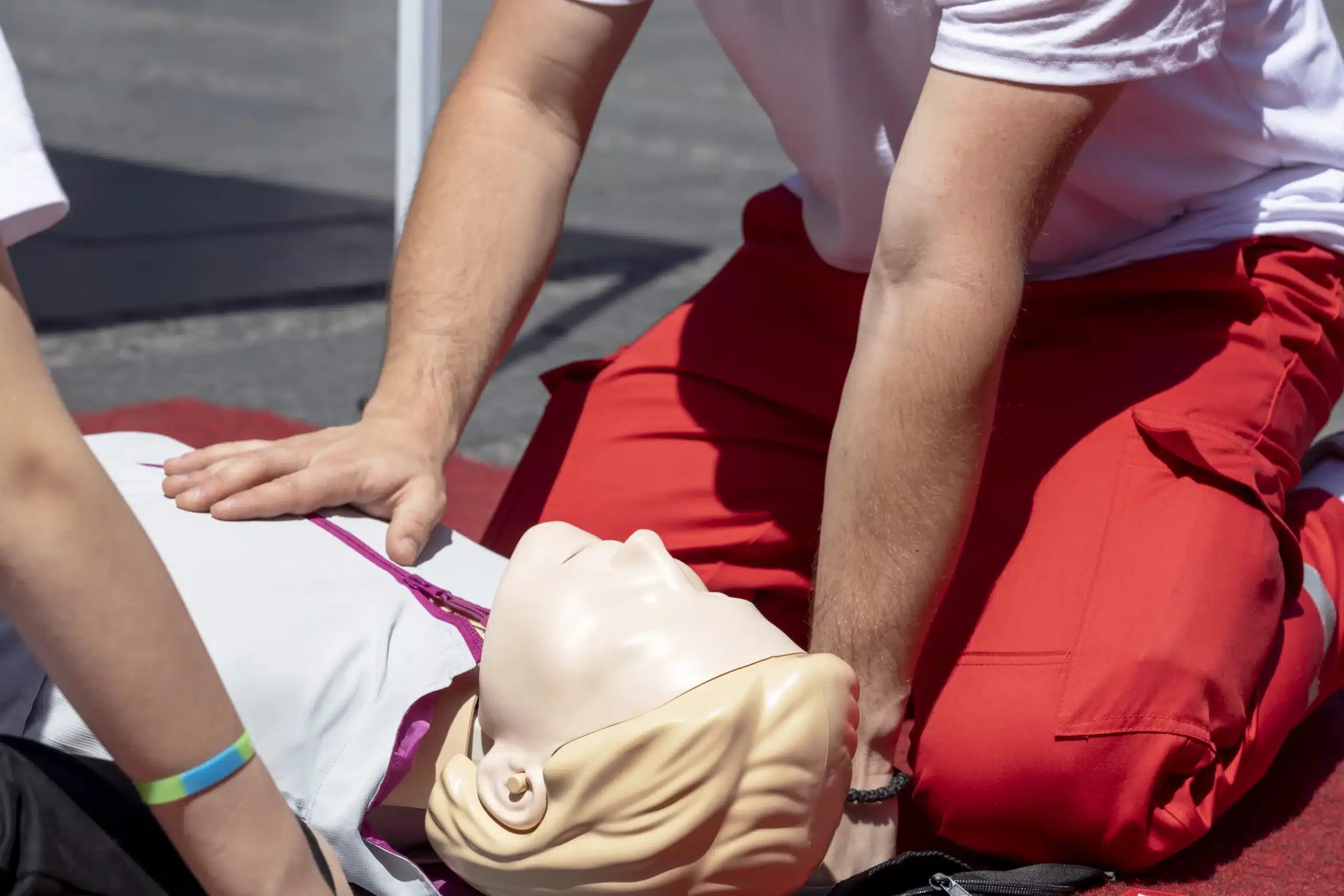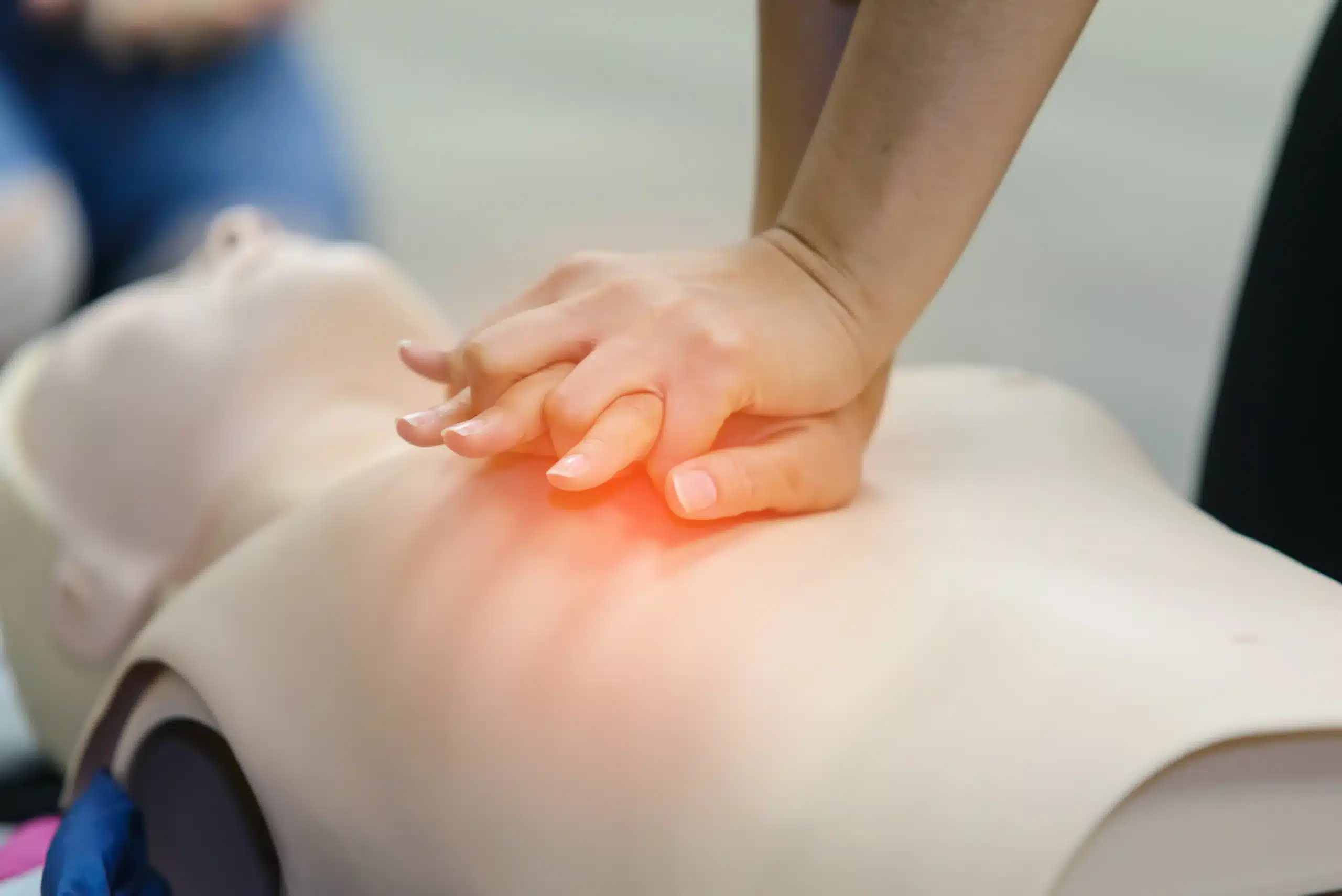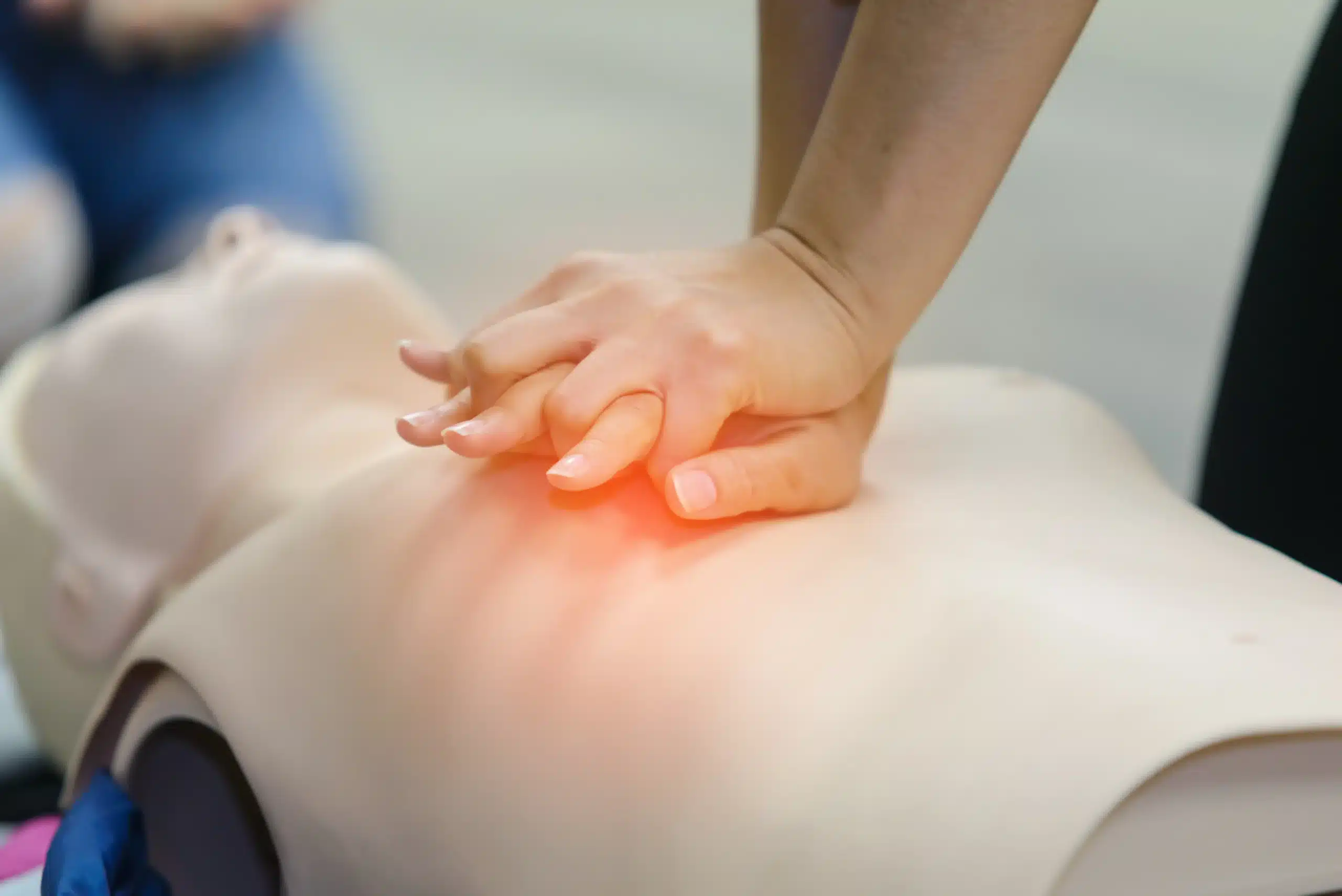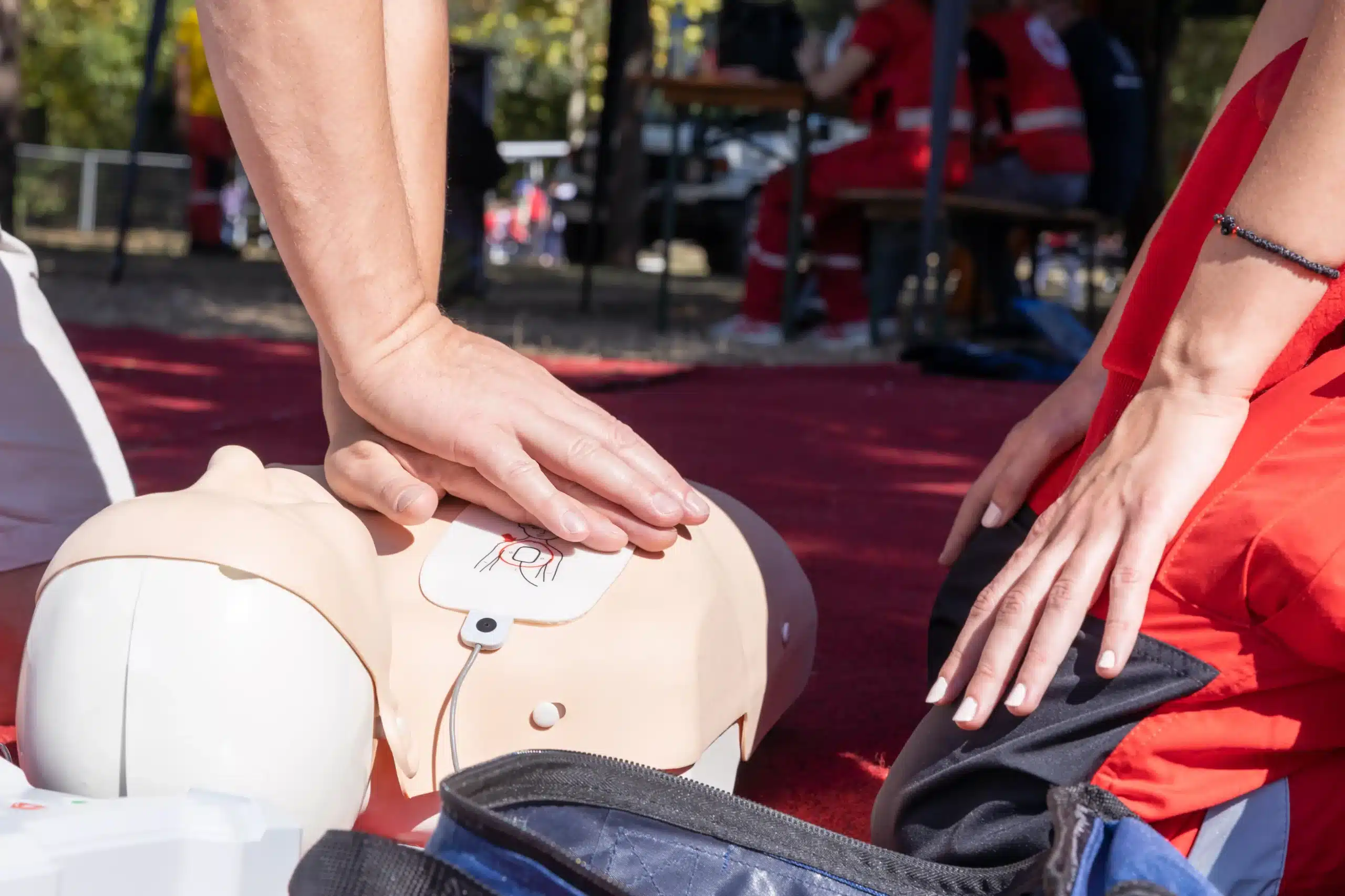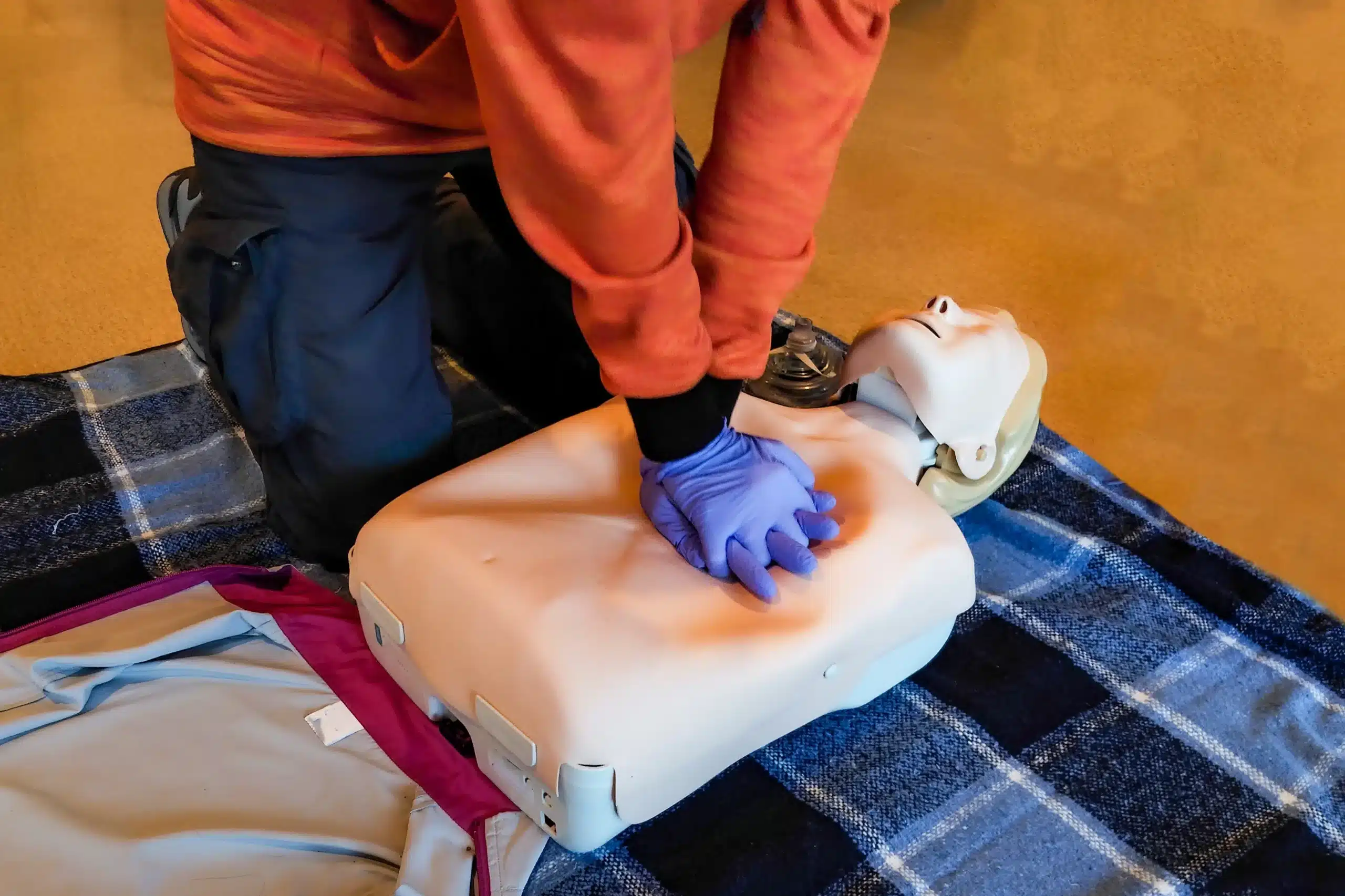As a healthcare provider, you’re dedicated to giving your patients the best possible care, and when it comes to children, that means being prepared for anything. Pediatric Advanced Life Support (PALS) training equips you with the skills and knowledge to handle pediatric emergencies effectively. This guide explores the ins and outs of PALS certification in Redwood City, offering valuable insights into course content, local training options, and the long-term benefits of this specialized training. If you’re looking to enhance your skills in pediatric advanced life support in Redwood City, this resource will help you get started.
Key Takeaways
- PALS certification equips healthcare providers with life-saving skills: It focuses on the rapid assessment and effective treatment of pediatric emergencies, covering essential interventions like CPR, airway management, and treatment of shock. Find a PALS course near you to gain these essential skills.
- PALS courses combine interactive learning with hands-on practice: The curriculum blends lectures and demonstrations with realistic simulations and skills testing, ensuring you develop both theoretical knowledge and practical competence. This prepares you to confidently manage pediatric emergencies in real-world settings.
- Redwood City offers accessible and high-quality PALS training: With various course formats and schedules, local training centers provide convenient options for healthcare professionals seeking PALS certification. Invest in your skills and enhance your career by exploring PALS courses in Redwood City.
What is Pediatric Advanced Life Support (PALS)?
What is PALS?
Pediatric Advanced Life Support (PALS) is specialized training for healthcare providers who care for infants and children. The course focuses on recognizing and treating pediatric emergencies, from respiratory distress and shock to cardiopulmonary arrest. PALS training is based on the latest scientific evidence, ensuring participants learn current best practices for pediatric care. This specialized training gives healthcare professionals the knowledge and skills to manage life-threatening situations in young patients. If you’re considering PALS certification, understanding the course content is a great first step.
Why is PALS Crucial for Healthcare Providers?
PALS training is essential for healthcare providers because it significantly improves their ability to handle pediatric emergencies. The goal is always better outcomes for young patients. PALS courses prepare healthcare professionals to recognize and intervene in critical situations. This training equips providers with the skills to manage life-threatening conditions and builds confidence in high-stress environments. Ultimately, PALS leads to better patient care and survival rates. For anyone working with infants and children in a healthcare setting, PALS certification is invaluable. Learn more about the importance of PALS training for healthcare providers.
Find PALS Courses in Redwood City
Finding the right Pediatric Advanced Life Support (PALS) course in Redwood City requires understanding your options. Here’s a breakdown of local providers and resources to help you get started.
AHA PALS Certification
The American Heart Association (AHA) sets the standard for PALS training. Look for courses offering AHA certification to ensure you’re receiving high-quality instruction and a recognized credential. Many training centers in Redwood City offer AHA-certified PALS courses, often found through local hospitals or established training organizations.
Safety Training Seminars PALS Courses
Safety Training Seminars offers various AHA courses, including PALS training, in Redwood City. They focus on providing comprehensive training and flexible schedules to accommodate busy healthcare professionals. Check their website for upcoming course dates and registration information.
Other Local PALS Training Providers
Redwood City CPR Classes
Redwood City CPR Classes offers various certification courses, including PALS. They often use the RQI (Resuscitation Quality Improvement) program, a blended learning approach combining online modules with in-person skills sessions.
Bay Area CPR
Bay Area CPR offers AHA-certified courses in Redwood City, frequently providing flexible scheduling options, making it easier to fit training into your schedule.
Cascade Training Center
Cascade Training Center provides PALS courses based on the latest AHA guidelines. Their focus is on delivering current, evidence-based practices in pediatric emergency care.
CPR Portal
CPR Portal lists various PALS courses in Redwood City, allowing you to compare options and find a course that suits your needs.
American Red Cross
While this article focuses on AHA PALS certification, the American Red Cross also offers a well-regarded PALS certification course. This could be a valuable alternative if you’re exploring different training approaches.
What Happens in a PALS Course?
A Pediatric Advanced Life Support (PALS) course equips healthcare providers with the knowledge and skills to respond to pediatric emergencies. The course follows the latest evidence-based guidelines from the American Heart Association (AHA) for CPR and Emergency Cardiovascular Care (ECC). Let’s break down what you can expect during your PALS training.
Course Content and Skills
PALS courses cover a range of topics crucial for managing pediatric emergencies. You’ll learn how to assess and stabilize a child in respiratory distress, shock, and cardiac arrest. The curriculum emphasizes early recognition and intervention, focusing on the systematic approach of pediatric assessment. This includes airway management, vascular access techniques, and medication administration. PALS training provides medical professionals with the expertise to deliver critical care to pediatric patients in high-stress situations. The course content is based on the most current science and recommendations from the AHA Guidelines for CPR and ECC.
Hands-on Practice
PALS courses aren’t just about lectures and textbooks. They heavily emphasize hands-on practice to build your confidence and competence. Expect interactive learning stations where you can practice essential skills, like inserting an IV line or performing CPR on an infant manikin. Simulated clinical scenarios allow you to apply your knowledge in a safe environment, encouraging active participation and teamwork. These simulations are designed to reinforce learning and improve your response time in real-world emergencies.
Assessment and Certification
Throughout the PALS course, your instructors will assess your understanding of the material and your practical skills. Successful completion involves both a written exam and skills testing. Upon passing, you’ll receive your American Heart Association PALS Provider card the same day. This nationally recognized certification validates your expertise in pediatric advanced life support and demonstrates your commitment to providing high-quality patient care. The PALS Provider Course aims to improve outcomes for pediatric patients by preparing healthcare providers to effectively recognize and intervene in patients with respiratory emergencies, shock, and cardiopulmonary arrest.
PALS Course Formats and Duration
PALS courses are offered in a variety of formats to suit different learning styles and schedules. Understanding these options can help you choose the best fit for your needs.
In-Person Classes
Traditional in-person PALS courses provide a structured learning environment with direct interaction with instructors and other healthcare professionals. These classes typically involve lectures, demonstrations, and hands-on practice sessions. In Redwood City, the American Heart Association (AHA) offers PALS training equipping medical professionals with the skills to provide critical care to pediatric patients. The in-person format allows for immediate feedback and clarification, fostering a strong understanding of the material. For those in nearby Palo Alto, PALS certification is also readily accessible.
Hybrid Learning
For those seeking more flexibility, hybrid PALS courses combine online learning with in-person skills sessions. This blended learning approach allows you to complete the online portion at your own pace, then attend a hands-on skills testing session. This format offers a convenient way to balance your studies with other commitments. Our hybrid PALS courses provide the best of both worlds.
Online Components and RQI
Many PALS courses now incorporate online components, such as pre-course work or continuing education through the RQI program. The RQI program offers a streamlined and efficient way to stay up-to-date on the latest resuscitation guidelines. This integration of online resources enhances the learning experience and provides ongoing support. You can learn more about RQI options and how they can complement your PALS certification journey.
Skills Testing
Regardless of the course format, all PALS courses include a skills testing component. This practical assessment evaluates your ability to perform essential life-saving techniques under pressure. The skills testing session is crucial for demonstrating competency and ensuring you’re prepared to respond effectively in real-world emergencies. At Safety Training Seminars, we emphasize hands-on practice during our PALS skills sessions to build confidence and proficiency.
Instructor Qualifications
When choosing a PALS course, the instructor’s qualifications are just as important as the curriculum. Experienced, certified instructors can make all the difference in your learning experience. Here’s what to look for in a qualified PALS instructor:
AHA Certification Requirements
The American Heart Association (AHA) sets the standard for PALS training. All PALS instructors must be currently certified AHA instructors in PALS. This ensures they have the most up-to-date knowledge and skills. The AHA offers rigorous instructor training covering everything from course content to teaching methodologies.
PALS Provider Course Completion
Before becoming a PALS instructor, candidates must successfully complete the PALS Provider Course. This firsthand experience provides them with a solid foundation in the principles and practices of pediatric advanced life support. They’ve been in your shoes and understand the challenges and rewards of learning these lifesaving skills.
Monitoring and Practical Teaching Experience
Certification isn’t just about passing a test. Aspiring PALS instructors also undergo a monitored teaching period, teaching a real PALS course under the supervision of an experienced instructor. This practical experience allows them to hone their teaching skills and demonstrate their ability to effectively deliver the course material.
AHA Teaching Methods Training
PALS instructors receive specialized training in AHA teaching methods. This training equips them with the skills to create an engaging and effective learning environment. They learn how to use AHA teaching materials, guide students toward meeting learning objectives, offer coaching and feedback, and conduct fair and objective skills assessments. This focus on teaching methodology ensures that students receive high-quality instruction and gain the confidence to apply their skills in real-world situations.
PALS Certification: Cost and Value
PALS Course Costs in Redwood City
Pediatric Advanced Life Support (PALS) courses in Redwood City, California, empower healthcare professionals to respond effectively to pediatric emergencies. Understanding the cost is an important first step in pursuing this training. While prices can vary, training providers work to make these essential certifications accessible. For accurate pricing, check directly with providers like Safety Training Seminars in Palo Alto, serving Redwood City. Knowing the cost upfront helps you budget and prioritize this valuable training.
Group Discounts and Special Rates
Many organizations, from hospitals to smaller clinics, require multiple staff members to hold PALS certification. Training centers often provide group discounts, reducing the cost when enrolling several employees at once. This can be a significant advantage for healthcare facilities looking to train their teams. Contact your chosen provider to explore available group discounts and make the training more affordable.
Low Price Guarantee
Some providers understand the financial commitment involved in professional development and offer a low-price guarantee. This assures participants receive high-quality training at a competitive rate, demonstrating a commitment to value and helping healthcare providers feel confident in their investment. Safety Training Seminars is one such provider dedicated to offering accessible, high-quality PALS training. This commitment, combined with convenient scheduling, makes pursuing PALS certification a practical step.
Prepare for Your PALS Course
Getting ready for your PALS class is easier than you think. A little prep work goes a long way toward ensuring you’re ready for the course material and skills testing.
Prerequisites and Recommended Experience
While you don’t technically need a current BLS CPR card for PALS certification, having a solid foundation in basic life support is essential. The PALS Provider Course covers advanced pediatric life support, but assumes you already have a good grasp of child and infant BLS skills. These skills will be reviewed and evaluated during the course, so it’s best to brush up on your BLS training beforehand. You can find more information on BLS courses on our BLS page.
Study Materials and Resources
The American Heart Association (AHA) offers excellent resources to help you prepare. The AHA’s PALS Instructor Essentials course is a great option if you’re interested in becoming a PALS instructor. This course uses various learning stations and simulated clinical scenarios to help solidify your understanding of the material. Even if you’re not planning to teach, familiarizing yourself with the instructor materials can give you a deeper understanding of the concepts.
Tips for Success
Want to ace your PALS course? Watch the pre-course videos! Many providers, including Safety Training Seminars, offer these helpful resources. Reviewing these videos before class significantly improves your chances of passing the practical skills test and boosts your confidence. Check out our RQI program for more information on available resources and ongoing training opportunities. Remember, successful completion earns you a PALS Provider card, valid for two years.
PALS Certification and Recognition
AHA PALS Provider Card
After successfully completing the PALS Provider Course and passing the skills test, you’ll receive an American Heart Association (AHA) PALS Provider Card. This card is your proof of certification, demonstrating your ability to provide high-quality pediatric advanced life support. Keep it readily accessible, as it might be required for certain jobs or volunteer opportunities. It’s a testament to your commitment to pediatric patient care and your readiness to respond effectively in emergencies.
Certification Validity and Renewal
AHA PALS Provider certification is valid for two years. To maintain your credentials and stay up-to-date with the latest advancements in pediatric advanced life support, renew your certification before it expires. Renewal involves completing a PALS Renewal Course, which reinforces essential concepts and updates you on any changes to guidelines or protocols. Regular renewal ensures you’re always prepared to deliver the best possible care to pediatric patients. Check with your employer or local providers for details on renewal requirements and upcoming courses.
Importance in Healthcare
PALS certification is highly valued in healthcare settings that treat pediatric patients. It signifies a provider’s specialized knowledge and skills in responding to pediatric emergencies. Hospitals, clinics, and other healthcare facilities often require PALS certification for their staff, particularly those working in emergency departments, intensive care units, and pediatric wards. Holding a current PALS certification enhances your professional credibility and contributes to a higher standard of care for children facing life-threatening medical situations. The American Heart Association emphasizes PALS training to improve outcomes for pediatric patients, making it a vital credential for healthcare professionals dedicated to providing the best possible care.
Why Train for PALS in Redwood City?
Choosing the right location for your PALS training can significantly impact your learning experience. Redwood City offers several advantages for healthcare providers seeking PALS certification. Here’s why you should consider training for PALS in Redwood City:
Quality of Local Training
Redwood City is home to respected training centers, including those affiliated with the American Heart Association (AHA). These courses adhere to the latest AHA PALS guidelines, ensuring you receive current instruction and learn the most effective techniques in pediatric care. This commitment to quality helps you gain the confidence and skills to handle pediatric emergencies. Training providers like Safety Training Seminars offer the official AHA PALS course, giving you access to the gold standard in pediatric advanced life support education.
Convenience and Accessibility
Redwood City offers flexible scheduling options for PALS courses, with classes running frequently throughout the week. This makes it easier to fit training into your busy schedule, whether you’re a local healthcare provider or traveling from a nearby city like Menlo Park or Palo Alto. The availability of the RQI program streamlines the certification process, allowing you to maintain your skills and credentials efficiently.
Networking Opportunities
PALS training isn’t just about acquiring skills; it’s also about connecting with your peers. In a Redwood City PALS course, you’ll learn alongside other local healthcare providers, creating opportunities to build your professional network. These connections can be invaluable for sharing best practices, discussing challenges, and staying informed about advancements in pediatric care. This shared learning environment fosters a sense of community among those dedicated to improving outcomes for their pediatric patients.
PALS in Redwood City: FAQs
What is PALS Certification?
PALS (Pediatric Advanced Life Support) certification focuses on quickly recognizing and effectively treating life-threatening emergencies in infants and children. The training covers essential skills like high-quality CPR, managing respiratory issues, and treating shock, among other critical interventions. It’s based on the most current science from the American Heart Association (AHA) Guidelines for CPR and ECC. This PALS overview provides more detail.
Who Needs PALS Certification?
PALS is essential for healthcare providers who may encounter pediatric emergencies. This includes physicians, nurses, paramedics, respiratory therapists, and other professionals working in emergency departments, intensive care units, or pediatric care settings. Anyone regularly involved in caring for infants and children will benefit from this specialized training. Learn more about who benefits from PALS training.
What Should I Expect During a PALS Course?
A PALS course combines interactive lectures, hands-on skill stations, and realistic simulations. You’ll learn to assess pediatric patients rapidly, make critical decisions under pressure, and perform life-saving interventions. The course emphasizes teamwork and communication, preparing you to work effectively as part of a resuscitation team. This resource describes what happens in a PALS course.
How Long is PALS Certification Valid?
PALS certification is typically valid for two years. To maintain your skills and stay current with the latest AHA guidelines, recertify before your current certification expires. The same PALS resource also covers recertification. Staying current ensures you’re always prepared to provide the best possible care.
Where Can I Find PALS Courses in Redwood City?
You can find high-quality PALS courses in Redwood City through providers like the American Heart Association. Redwood City CPR Classes offers convenient local options. They provide comprehensive training that meets the AHA’s rigorous standards.
Related Articles
- Pediatric Advanced Life Support (PALS) in Menlo Park – Palo Alto CPR Classes
- PALS Classes in Palo Alto, CA – Palo Alto CPR Classes
- CPR Certification in Palo Alto: Your Guide – Palo Alto CPR Classes
PALS in Redwood City: FAQs
What does PALS training cover?
PALS training focuses on the systematic assessment and management of critically ill infants and children. It covers a wide range of topics, including respiratory emergencies, shock, and cardiac arrest. The course emphasizes early recognition and intervention, providing healthcare providers with the knowledge and skills to stabilize and treat pediatric patients in life-threatening situations. You’ll learn essential techniques like CPR, airway management, and medication administration, all tailored to the specific needs of young patients.
Is PALS certification required for my job?
While PALS certification isn’t universally mandated, many healthcare facilities require it for specific roles, especially those involving direct care for infants and children. These roles often include positions in emergency departments, intensive care units, and pediatric wards. Even if not strictly required, PALS certification demonstrates a commitment to high-quality pediatric care and can significantly enhance your career prospects. It’s best to check with your employer or prospective employer to determine their specific requirements.
How much does a PALS course cost in Redwood City?
The cost of a PALS course can vary depending on the provider and the course format. It’s always a good idea to contact training centers directly for the most up-to-date pricing information. Many providers offer group discounts and other special rates, so be sure to inquire about those options as well. Consider factors like course content, instructor experience, and available resources when comparing prices and making your decision.
What’s the difference between PALS and BLS?
BLS (Basic Life Support) focuses on foundational life-saving skills, including CPR, while PALS (Pediatric Advanced Life Support) builds upon those skills with a more specialized focus on pediatric emergencies. PALS delves deeper into the physiological differences between children and adults, addressing the unique challenges of managing respiratory distress, shock, and cardiac arrest in younger patients. While BLS provides a crucial foundation, PALS equips healthcare providers with the advanced knowledge and skills needed to handle more complex pediatric emergencies.
How can I renew my PALS certification?
PALS certification is typically valid for two years. To renew your certification, you’ll need to complete a PALS Renewal Course before your current certification expires. This course reinforces essential concepts and updates you on any changes to guidelines or protocols. Contact your local AHA training center or check the AHA website for information on available renewal courses and scheduling options. Staying current with your PALS certification ensures you’re always prepared to provide the best possible care to pediatric patients.
